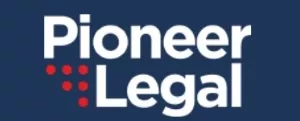Pioneer Legal are most popular:
- within Food, Drugs, Healthcare and Life Sciences topic(s)
- On August 02, 2024, the United States Justice Department, on behalf of Foreign Trade Commission has filed a lawsuit against social media platform TikTok, its parent company ByteDance Ltd., and its affiliated entities, alleging that the platform failed to comply with the provisions of the Children's Online Privacy Protection Act (“COPPA”) by inter-alia (1) knowingly creating accounts for children and collecting data from those children without first notifying their parents and obtaining verifiable parental consent; (2) failing to honour parents' requests to delete their children's accounts and information; and (3) failing to delete the accounts and information of users they know are children. Further, the lawsuit also alleges that TikTok is also in breach of an existing 2019 ‘consent order' issued by the US Federal Trade Commission for violating COPPA.
- The lawsuit further alleged that TikTok collected and retained personal data, including email addresses and IP addresses with respect to users under 13 years of age, despite claiming that its ‘Kids Mode' feature restricts the collection of such data and then shared some of this data with Facebook and a marketing firm, further infringing on privacy laws.
- In response to the aforesaid lawsuit, TikTok has expressed its disagreement with the allegations and emphasized on its commitment to improving child safety on its platform.
- The lawsuit highlights the importance of prioritizing the protection of minors' data and adhering strictly to privacy regulations and could have a significant impact on how digital platforms manage children's data to comply with applicable privacy laws.
The content of this article is intended to provide a general guide to the subject matter. Specialist advice should be sought about your specific circumstances.
[View Source]




